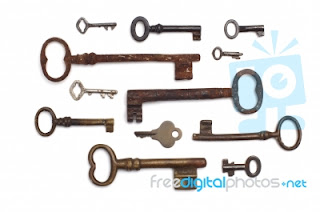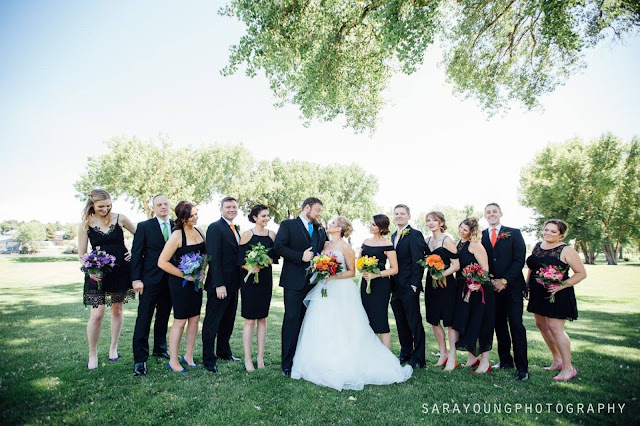Event Success Checklist
Before you go to your next conference, tradeshow or other business development event make sure you can answer these 7 essential questions for guaranteed success:
1. Do you have a clear vision of what you want to accomplish?
Are you debuting a new product? Are you recruiting new customers? Whatever your goal, make sure you have it clearly defined before attending the event. Better yet, have it clearly defined before you sign up and commit to attending!
2. What metrics will you use, post-event, to determine success?
Now really dissect those metrics so that you know exactly what they measure. Is your metric for success based on the number of business cards you collect? Why? How many business cards need to be collected for the event to be considered a success? Why? You get the picture - dig a bit deeper. Stop paying to attend events because it’s what you’ve always done. Instead, find events that will allow you to walk away with genuine connections rather than a stack of business cards.
3. What image or brand identity do you want to convey?
For many potential customers, this will be their first in-person impression of your business. Do you have employees that greet a prospect with a mouth full of food or a wrinkled, untucked shirt? Nobody wants to buy from a person that looks unprofessional. Whatever your brand identity is, make sure the person working this event understands the importance of creating a trustworthy first impression.
4. Are you sure your staff, experienced or not, have been trained properly?
 Obviously, you’re investing in these business development events to generate revenue, but are your salespeople on the same page? Often the team members who are working events sit and wait for business conversations to come to them or they overdo it with the sales pitch when a somebody with a heartbeat wanders into their booth. Train your team to have a convincing pitch ready but make sure they are trained to ask genuine questions, qualify their prospects, and be honest about what capabilities your company can deliver on after the event. The goal is for them to be engaging and ultimately create meaningful interactions at events.
Obviously, you’re investing in these business development events to generate revenue, but are your salespeople on the same page? Often the team members who are working events sit and wait for business conversations to come to them or they overdo it with the sales pitch when a somebody with a heartbeat wanders into their booth. Train your team to have a convincing pitch ready but make sure they are trained to ask genuine questions, qualify their prospects, and be honest about what capabilities your company can deliver on after the event. The goal is for them to be engaging and ultimately create meaningful interactions at events.
5. Do you know what the true cost & ROI potential of the event is?
Do you have a total cost of the event fees, travel expenses, costs of entertaining clients, etc? Create an honest total cost of
your company’s attendance. If possible, put these figures together when deciding which events to allocate funds to. A $5000 trade show booth may sound like a good deal until you add up all of the hidden fees, travel costs, employee expenses, etc. That 5K booth suddenly becomes a 10K+ investment. Now you know what the real cost is and what it will take to recoup your investment, so the next question is:
6. How are going to track your leads and measure ROI post-event?
This will be different for every business, but it is much easier to track ROI at more intimate, senior-level events. A trend many industries are experiencing is a move away from trade shows towards event formats with pre-scheduled one-on-one meetings. This takes the risk & guesswork out of the event and allows you to build a deeper connection than the standard conference business card exchange! These programs usually have an all-in cost. While they seem pricier at first blush, they are often a similar cost to trade shows once you total all of the costs. Instead of tracking hundreds of business cards, you can focus on a handful of high-quality meetings with a higher probability of closing.
7. What is your strategy for follow-ups?
An important follow-up strategy is just as essential as selecting the right event and making the right connections while there. If you are attending a large event and collecting dozens of business cards, make sure you identify what follow-up each person is expecting from you before they leave your booth. If you have selected a more elite, intimate event like a Summit, set your follow-ups while you are on-site. The most important way to guarantee success post-event is to have each prospect open their calendar and accept a follow-up call, meeting, or site visit while you are still face-to-face. Stop wasting time chasing clients who aren’t qualified or send qualified prospects the wrong information- set a specific follow-up while in-person at the event.
If you can lay out a clear and concise plan to answer these questions before you show up to your next business development event, you will be sure to walk away with an honest measure of your success and more clients!
As we head into the new year, many companies will be evaluating their business development budgets and strategies for the coming year. Before you allocate monies to the same old show, make sure to ask and answer these questions to make your investment go further.





Comments
Post a Comment